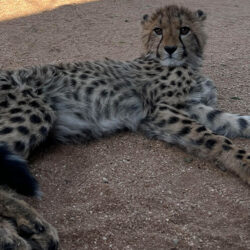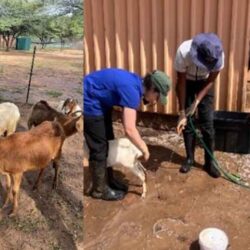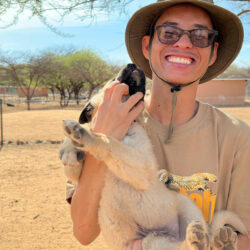Highlights of a Life-Changing Internship
-
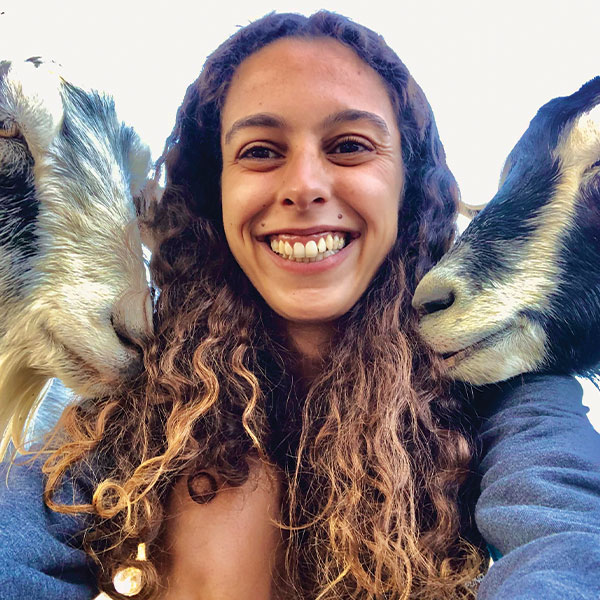
- by Maria Costa September 18, 2020
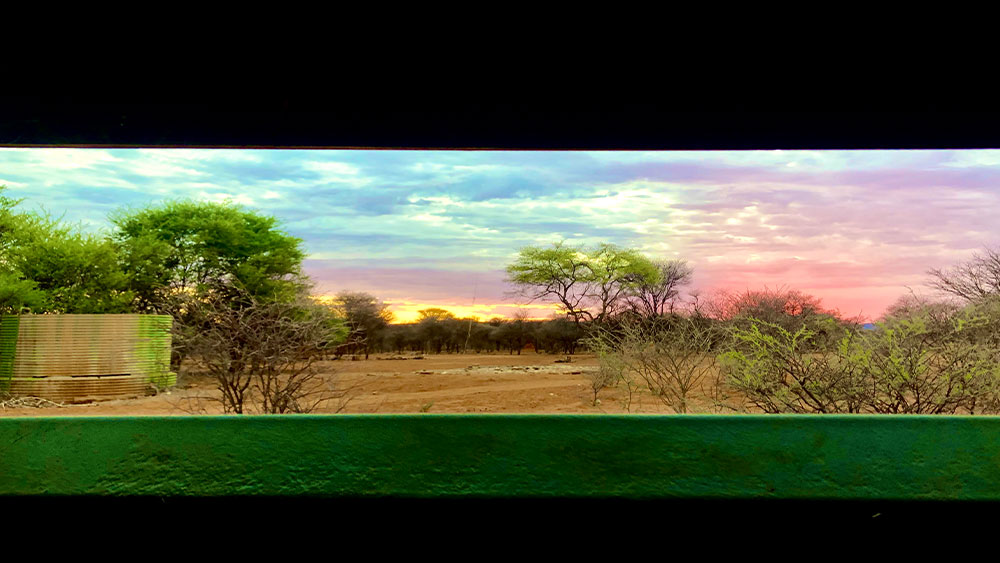
My name is Maria Costa, I’m from Portugal, and I arrived for the first time at CCF in November 2019. I’m a veterinary master’s student at the University Lusófona in Lisbon.
My internship with CCF started with a project, where I worked with the veterinary team in the Okakarara District, collecting blood samples from cattle to test for brucellosis. The main aim of this project was to find the prevalence of brucellosis in cattle in the eastern communal conservancies. CCF has been working on a one-health approach; this means that human health and animal health are interdependent and bound to the health of the ecosystems in which they exist. Since there are so many people drinking raw cow’s milk in these communities, there is a need for this kind of approach.
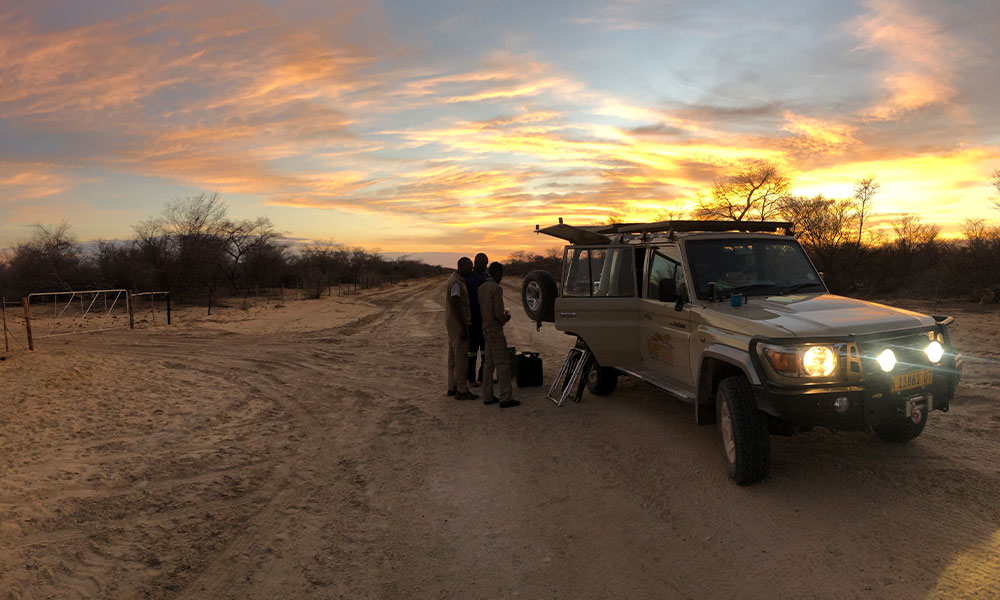
Brucellosis is a disease caused by a bacteria called Brucella, and it has a significant impact on public-health, mainly because it is a zoonosis, which means humans can get it from animals. In cattle, brucellosis results in serious economic losses due to late-term abortion, stillborn and weak calves. In humans, brucellosis typically manifests as a range of non-specific clinical signs including fatigue, arthritis, and fever. Human brucellosis is normally contracted by the ingestion of raw or unpasteurized milk. Even though pasteurizing milk, or simply boiling it, is an effective means to destroy Brucella and prevent infection in humans, this precaution is not usually practiced in some resource limited communities, because of either long- standing cultural practices or general lack of understanding by the public about the dangers of consuming raw milk.
I spent 4 days in the Okakarara District, camping with CCF’s vet team in the bush. We visited 17 farms and were able to collect 186 samples. While we were at the farms, we also vaccinated dogs against rabies, helped farmers with any animal health related issues and answered questions they had.
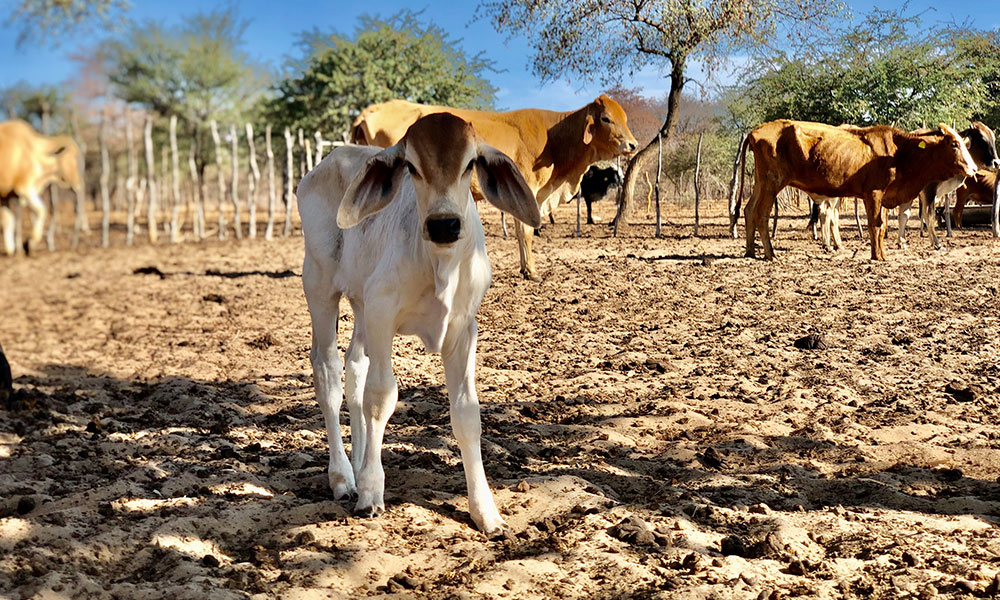
Once back at CCF the testing process started. I used the Rose Bengal test and it took me about two weeks to run all the samples. With my results I was not able to get a brucellosis prevalence, but I was able to conclude that the animals that we collected blood from were, most likely, all vaccinated. After I had all my results and conclusions, I still had a month left to experience other aspects of the work CCF does.
At that time there were a lot of interns from all over the world – Namibia, Switzerland, France, Brazil, America and Australia. We frequently gathered after dinner at the communal dining area – The Hotspot, which was really enlightening due to all cultural differences, and fun, because it was a good and healthy way to decompress after a long day of contributing to saving the cheetah.
Eventually, I had the opportunity to join a waterhole game count where I spent 12 hours straight, off-radar, in a small hut by a waterhole and counted/registered every animal that showed up – an intense but amazing experience, that every nature and wildlife lover should do at least once in their lifetime!
The first stage of my internship was only 2 months. During this time, I met a lot of people with completely different backgrounds from mine. I got to learn a lot about cheetahs and its conservation and most importantly, I had so many extraordinary experiences that taught me a lot about life, people and animals.
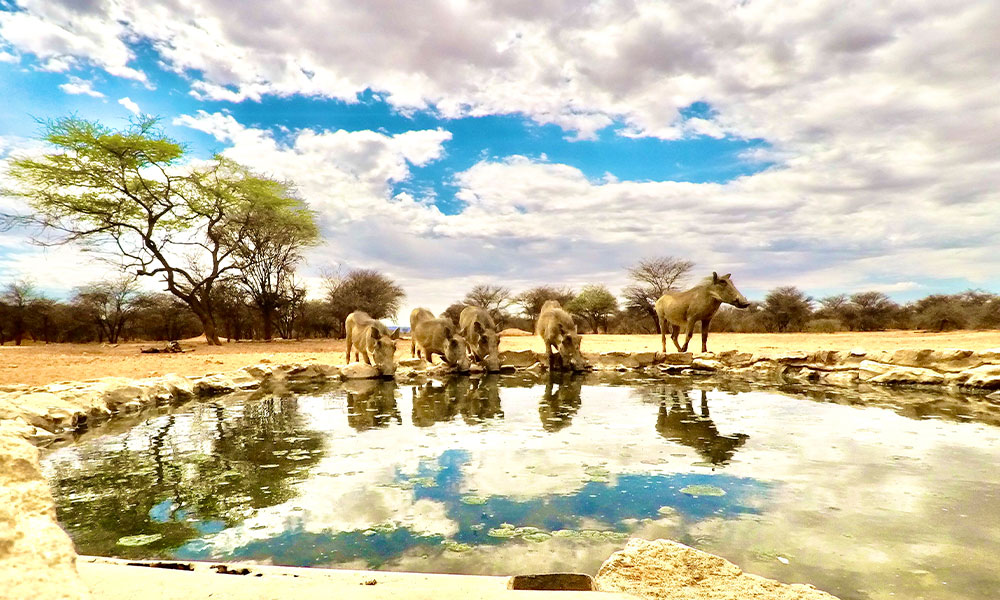
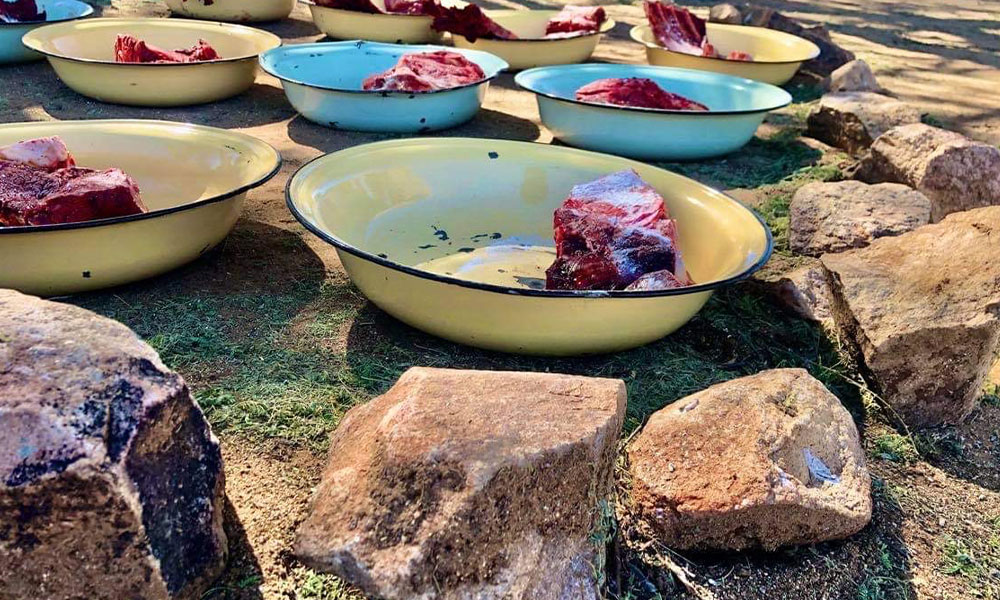
I came back to CCF in March 2020 because I still had to do some hours to conclude my internship. I came to work as a Veterinary Intern for 3 weeks, helping in the clinic at the center, but then the corona lockdown took place and after 5 months, I’m still here…
At the time I arrived at CCF, we were a lot of interns working on the farm. However, when Namibia began the first stage of the lockdown, we were only 7. Despite each one of us being assigned to a department, we all had to help everywhere. These were intense, exhausting, full of drama but exhilarating times. We formed a big family, interns and staff that stayed on the farm. We went into lockdown together, throughout the restrictions, frustrations of not being home and the constant waiting for good news from the world. Probably the toughest times for everyone. Considering the situation in the world at the time, I am so grateful that I got locked down with everyone that remained working on the farm. Everybody was trying to make it easier for everyone, always caring and having each other’s back – an experience filled with team spirit and friendship.
Before I came to CCF, I had been in Namibia several times. I was born and raised in Portugal, but when I got old enough to decide where I wanted to live, I chose Africa. I lived between Angola and South Africa for 6 years.
I am an absolute fan of this continent, and my favorite country was always Namibia. For years I came to this country as a tourist and after all, I never thought I would get an opportunity like the one CCF has given me. I worked hands-on with passionate people saving cheetahs.
One of my favorite tasks is husbandry. Here, I have the opportunity to ride on the back of a bakkie through the african bush and to get to know all of CCF’s cheetahs. Husbandry includes the feeding and the checking of all CCF’s cheetahs, the ones that are permanent residents and the ones that are releaseable candidates, being rehabilitated at the center.
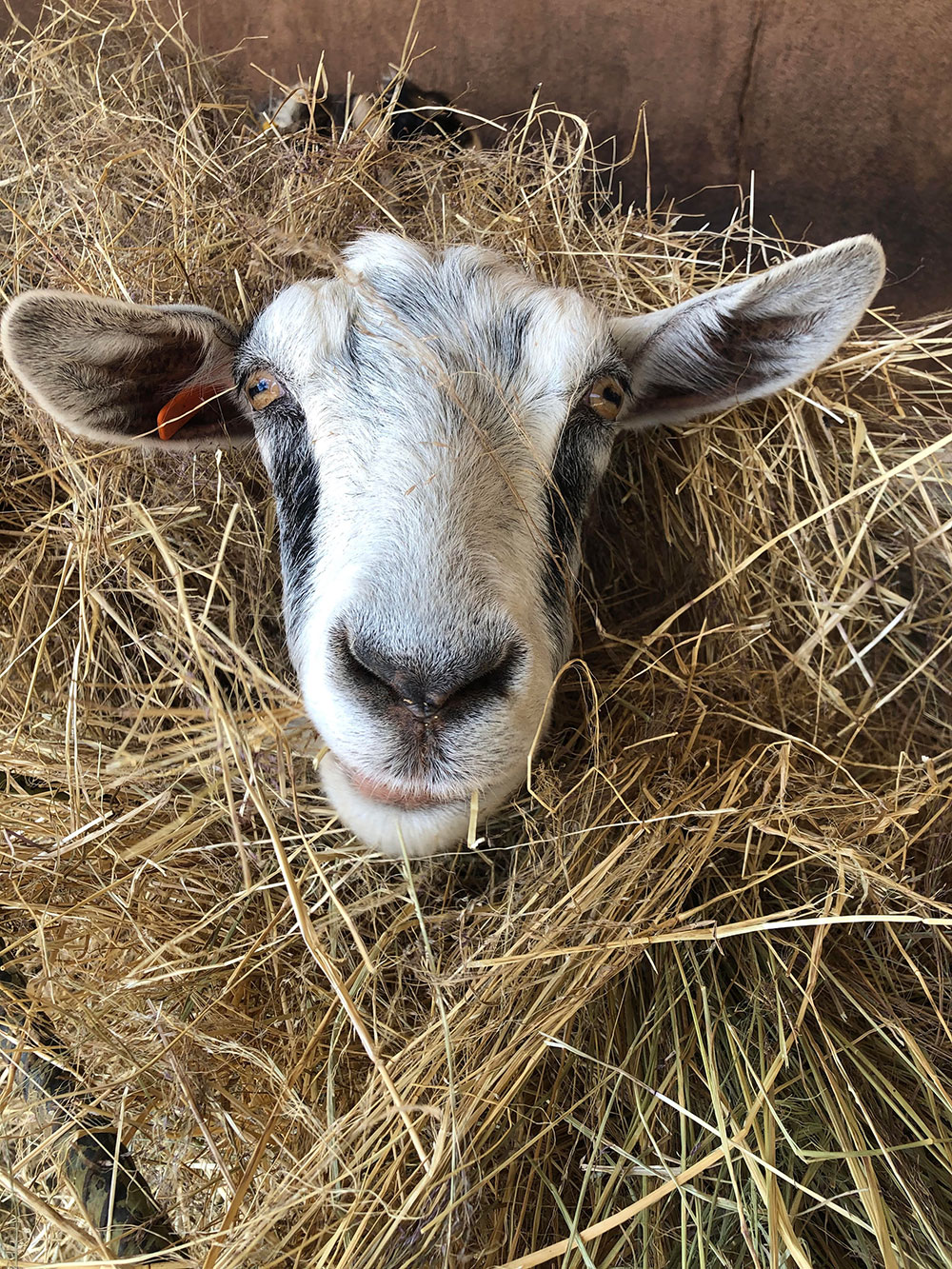
Goat checks (making sure the herd is healthy when it goes out, and when it comes back from foraging in the field) are part of the Veterinary internship at CCF. Taking care of CCF’s small stock herd is also a way of saving cheetahs, because it shows farmers that co-existence with predators is possible with appropriate livestock management and appropriate mitigation to prevent livestock loss to predators. The model farm also helps generate an income to support CCF. Goat checks are done twice a day. We check all the Damara sheep, and Saanen and Boer goat on the model farm for any health problems.
I never thought I would love working with goats this much. I’ve learned a lot and continue to learn a lot here at CCF. I’m learning a lot about cheetahs, but also more about goats. Perhaps I had a general lack of knowledge about these animals, but goats have fascinated me since I got here. They all have completely different personalities, they have friends or goats that they prefer hanging out with and they even have their favorite humans with whom they behave like little puppies – super cute. CCF goats are just remarkable.
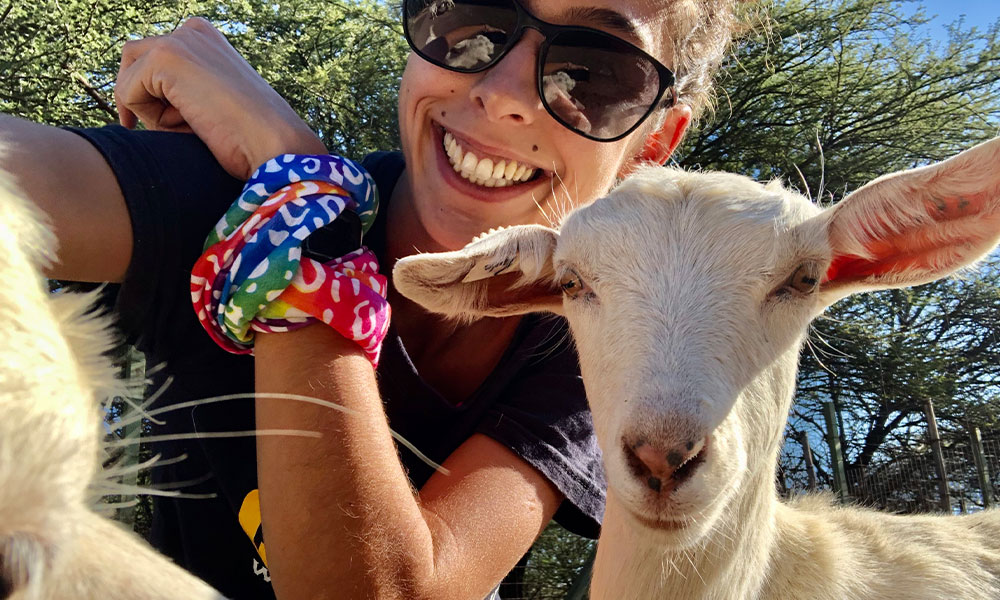
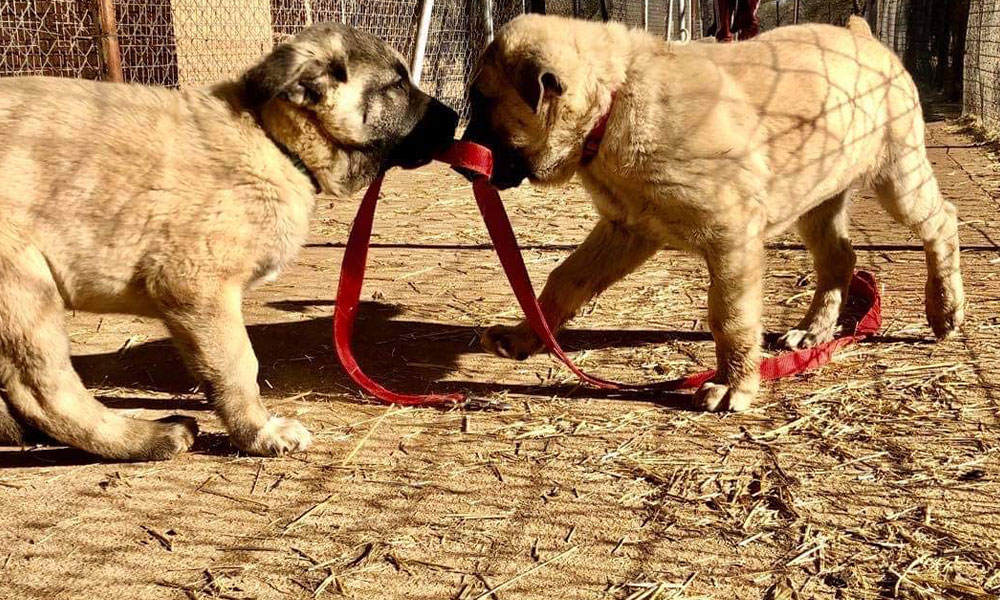
Saving cheetahs also involves feeding and taking care of the Anatolian shepherds, the livestock guarding dogs that CCF’s dog team breeds and trains, to eventually be placed on farms, so they can keep the livestock safe and prevent farmers from using lethal mitigation on cheetahs on their land.
My time at CCF helped affirm my belief that protecting wildlife is going to be my life.
Related Reading
-
September 30, 2025
Brendy’s Story: Honoring My Dad with the Cheetah Conservation Fund -
December 3, 2023
Paws, Prints and DNA: Chronicles of a Genetics Intern

